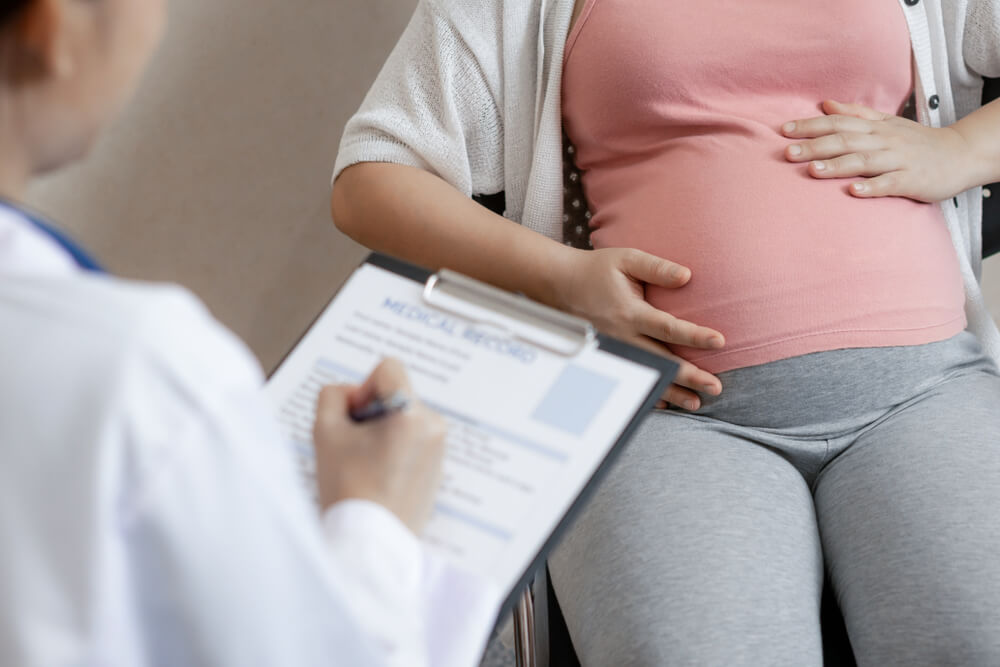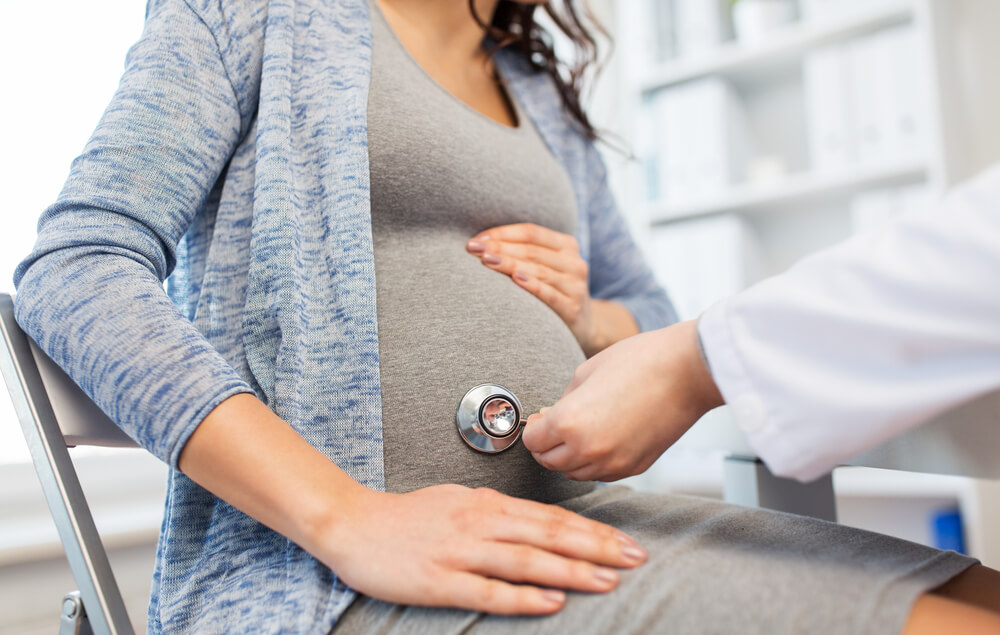Uterine fibroids and pregnancy may go hand in hand, and in some cases, complications can arise. This expert-approved article will help you understand fibroids and pregnancy and how to deal with fibroids when pregnant. You will also find out the truth behind the saying that fibroids cause infertility and much more. If you are planning to conceive or are already pregnant and worried about fibroids, this article is perfect for you.
Of course, if you are concerned or have additional questions, we always recommend seeking a professional. If you are in the area or looking for the best experts in the field, we recommend booking a fibroids treatment in South Miami, Florida.
That being said, here are the must-know facts about uterine fibroids and pregnancy.
What are Fibroids?
To get started with this article on uterine fibroids and pregnancy, it is essential to define the term “fibroids.” Non-cancerous growths that appear in or around the uterus (or the womb) are known as fibroids. These growths consist of fibrous tissue and muscle and can range in size. Sometimes, fibroids are also referred to as leiomyomas or uterine myomas. Since women with fibroids do not always display symptoms, these growths can go undetected. That said, women who have symptoms (approximately one in three women will have them) might experience:
- Abdominal or tummy pain
- Painful periods or heavy periods
- Constipation
- A frequent urge to urinate
- Discomfort or pain during sexual intercourse
Since fibroids often do not cause symptoms, they can go undiagnosed. Hence, we always recommend opting for a routine gynecological scan, test, and examination. If you believe you may have fibroids, consult your healthcare professional immediately. We suggest reaching out to OB-GYN Specialists of South Miami for the most professional results.

What Causes Fibroids?
Although the precise cause of fibroids remains a mystery, experts believe they are linked to changing hormone estrogen levels. Namely, if the patient has extremely high estrogen levels, fibroids may develop and grow. Also, if the body does not produce enough progesterone, the fibroids will continue to grow. So, progesterone can limit the effects of estrogen on growth, and it can also restrict the size of the fibroids.
But how are uterine fibroids and pregnancy linked? Since hormone levels rapidly change during pregnancy (such as rising estrogen levels in a pregnant woman’s body), fibroids may develop. However, this may not always be the case. Although some pregnant patients may experience uterine fibroids in the first trimester, some women may have growths that shrink during this time. According to a study from 2010, 79 percent of uterine fibroids that women had prior to pregnancy shrunk in size after delivering the baby.
Fibroids During Pregnancy: What to Expect
In most cases, you do not have to worry about fibroids and pregnancy. The truth is that only a small percentage of pregnant patients deal with uterine fibroids. However, you may be plagued with questions such as “can you get pregnant with fibroids?”, “are fibroids dangerous for my baby?” and so on. We understand your concern, so in the following sections, you will find information on what to expect when you have fibroids during pregnancy.
First Trimester
Uterine fibroid growth will most likely happen during the first trimester or during a woman’s first three months of pregnancy. This is because fibroids require estrogen, the female reproductive hormone, to grow and develop. When you are pregnant, your body produces increased estrogen levels.
Here are some issues pregnant women with uterine fibroids may need to deal with:
- Pain and bleeding: According to the results of a study that analyzed over 4,500 female patients, 11 percent of women with fibroids experienced bleeding, and 59 percent felt only pain. An additional 30 percent of the patients experienced both pain and bleeding during the first three months of pregnancy.
- Miscarriage: In some cases, women with a fibroid pregnancy may miscarry during the early stages of pregnancy. The statistics reveal that women with fibroids are at higher risk of miscarrying the baby than those without fibroids (14 percent versus 7.6 percent). Moreover, patients with a fibroid pregnancy with multiple or large growths are at even higher risk.
Second and Third Trimesters
Fibroids during pregnancy can endanger the child’s life, and the risks increase as the pregnancy develops. In the second and the third trimesters, the patient’s uterus will expand to make space for the baby. Because of this, the uterus can push against growth. Here are some dangers linked to fibroids during pregnancy:
- Pain: The most common symptom of uterine growth is pain. The changes can sometimes become twisted, leading to intense discomfort and cramps. Sometimes, the fibroids can outgrow their blood supply, and they may turn red and die. This is referred to as “red degeneration,” and it may cause extreme abdominal pains and sometimes even miscarriage. Be warned, if you have fibroids during pregnancy and you are considering using ibuprofen or Advil, you may boost your chances of miscarriage. Always talk to your healthcare provider about your options, and never attempt to self-medicate.
- Preterm delivery: Fibroids during pregnancy can also lead to premature birth. According to the facts, women with fibroids are at higher risk of preterm delivery than women without growth.
- Placental abruption: Based on ongoing studies, fibroids during pregnancy can also lead to placental abruption. This is a very serious condition that can limit your baby’s oxygen supply. Moreover, since it can cause heavy bleeding, the expecting mother may go into shock.
Delivering Your Child
Can you get pregnant with fibroids? Yes, you can. But, fibroids can make delivery more complicated. According to experts, these growths can boost the odds of undergoing a cesarean section. In fact, women with uterine growths are six times more likely to require a C-section compared to healthy women.
Fibroids Post-Delivery
Women with a fibroid pregnancy may experience a shrinkage of the growths after delivering the baby. In fact, data reveals that 70 percent of women who had live births experienced uterine fibroid shrinkage.
FAQ
Do Fibroids Cause Infertility?
In most cases, fibroids do not cause infertility. That said, around five to ten percent of women with fibroids are infertile. The fertility rates typically vary based on the location and the size of the uterine growths. Sometimes, fibroids cause infertility. Here are five ways uterine fibroids reduce fertility rates:
- The fibroids can block the fallopian tubes.
- The alteration in the uterus’s shape can interfere with the sperm’s movement.
- The alteration in the cervix’s shape can affect the number of spermatozoids that can reach the eggs.
- Fibroids cause infertility if the uterine cavity’s blood flow is affected.
- Uterine fibroids may impact the uterine cavity’s lining size.

Can I Avoid Fibroids During Pregnancy?
You cannot prevent the development of uterine fibroids. However, fibroids may naturally shrink during pregnancy or after giving birth.
Can You Get Pregnant with Fibroids?
Yes, you can get pregnant with fibroids. However, in some cases, women experience infertility and other complications.
Where Can I Get Treatment?
We recommend consulting with a healthcare professional and scheduling regular gynecological exams. Look for a reliable clinic with experienced professionals.
Book an Appointment Today
If you have any additional questions concerning uterine fibroids, we are here to help you. Our team of professionals will provide you with expert advice and the best possible treatment for a healthy pregnancy. Give us a call today.


